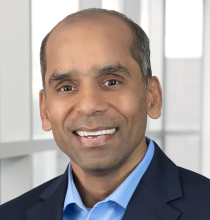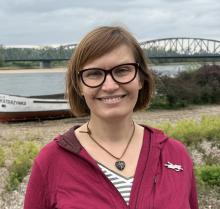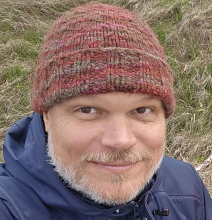Abstract
While technical competency remains foundational, senior engineering leaders recognize that sustainable competitive advantage stems from organizational capabilities that transcend code quality. In today's globally distributed engineering landscape, the differentiating factor between mediocre and exceptional teams lies in the cultivation of interpersonal skills across the organization.
This presentation addresses five critical soft skills—communication, adaptability, conflict resolution, mindfulness, and kindness—that directly impact engineering team performance, retention, and scalability. These competencies are essential at every level, from senior individual contributors to engineering managers, and become increasingly vital as organizations scale across geographic and cultural boundaries.
For senior leadership, investing in these skills yields measurable returns: reduced inter-team friction, accelerated decision-making cycles, improved cross-functional collaboration, and enhanced ability to attract and retain top technical talent. The session provides frameworks for systematically developing these capabilities within your engineering organization and demonstrates how to leverage soft skills as a strategic multiplier for technical excellence and business outcomes.
Interview:
What is your session about, and why is it important for senior software developers?
My session focuses on the importance of soft skills and their impact on team performance, retention, and scalability. For senior software developers, this becomes especially critical. As your career progresses, you realize that technical expertise alone isn’t enough. Clear communication, conflict resolution, adaptability, mindfulness, and kindness often decide whether a project succeeds or fails. At scale, these skills shape team culture, lower attrition, and create an environment where developers want to stay and thrive. The most effective way to foster this is through role modeling by senior developers, team leads, and managers. When leaders set the tone, they create psychological safety and open the door for true innovation.
Why is it critical for software leaders to focus on this topic right now, as we head into 2026?
As we head into 2026, AI is taking over a growing share of computational tasks. Code generation, testing, and optimization that once demanded hours of deep focus are now handled in seconds. This shift doesn’t make humans less valuable; it makes our distinctly human skills the differentiator. The ability to listen with empathy, collaborate across disciplines, give and receive feedback, and build trust is what keeps teams aligned when the technical heavy lifting is increasingly automated.
What this really means is that the “hard” skills may get you started, but the “soft” skills determine how far and how effectively you can go. With AI handling the routine, it’s the human side of work with adaptability, communication, and conflict resolution that will drive innovation and keep organizations resilient. For senior developers, team leads, and managers, these skills aren’t optional anymore; they’re the lever for scaling teams, retaining talent, and ensuring technology serves people, not the other way around.
What are the common challenges developers and architects face in this area?
Some of the common challenges in this area include ensuring that the intent of your idea aligns with its impact on the audience. If it’s not aligned, miscommunication follows, and that leads to confusion, frustration, and eventually loss of trust. During conflict resolution, if you can’t distinguish between a personality conflict and a task-related disagreement, the real issue gets buried, making it hard to reach a timely resolution. And if you’re unable to adapt to changing project requirements, then deadlines slip, team morale dips, and the end product often misses the mark. If you keep looking to the past instead of resolving issues in the present moment, resentment builds and progress stalls. Finally, being unkind to team members erodes psychological safety, shuts down collaboration, and weakens the very foundation of a high-performing team.
What's one thing you hope attendees will implement immediately after your talk?
All the skills mentioned in this talk are valuable for senior developers. But if there’s one takeaway I’d like attendees to leave with, it’s the practice of reflective listening. Think of it as being a sponge where you are absorbing the other person’s point of view without judgment. This not only helps you truly understand their perspective, but it also makes them more open to hearing yours.
What makes QCon stand out as a conference for senior software professionals?
It’s a conference where developers building high-scale systems openly share their experiences, including both what worked and what didn’t. Learning from both successes and failures gives insights that can be applied immediately in your own workplace. Beyond the sessions, the hallway tracks are a highlight, offering direct access to speakers for candid conversations. QCon also brings together engineers from startups, large tech companies, and different regions, giving a diversity of perspectives you rarely get elsewhere. The focus on deep technical content, emerging trends, and real-world architecture challenges makes it a unique opportunity to stay ahead of the curve. Above all, it’s a community-driven space where collaboration, discussion, and idea exchange inspire new ways of thinking, connect you with professionals using bleeding-edge technologies, and provide practical takeaways for improving your teams and systems.
Speaker

Arun Gupta
25+ Years Experience Across Companies Like @Intel, @Apple, @Amazon, and @Red Hat, Chaired the CNCF and OpenSSF Governing Boards, Organizer at the UN’s Tech Over Hackathon
Arun Gupta is a globally recognized expert in developer relations, open source strategy, and go-to-market innovation. With over 25 years of experience at Intel, Apple, Amazon, and Red Hat, he’s built developer communities that drive adoption and aligned DevRel with product, marketing, and sales to create lasting champions. Arun advocates mindfulness, kindness, and developer empathy as the foundation of modern DevRel.
He chaired the CNCF and OpenSSF governing boards, leading ecosystem growth and open source security initiatives. Arun also helped Fortune 100 companies embrace open collaboration through founding multiple open source program offices. A global speaker and author, Arun has keynoted in 50+ countries, is a Docker Captain and Java Champion, and founded Devoxx4Kids USA. He actively supports initiatives like TEDAI and the UN’s Tech Over Hackathon.







